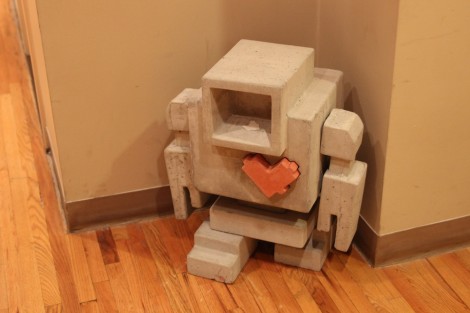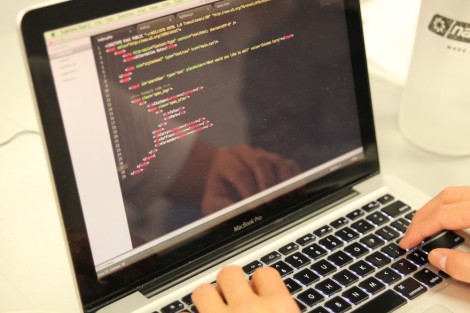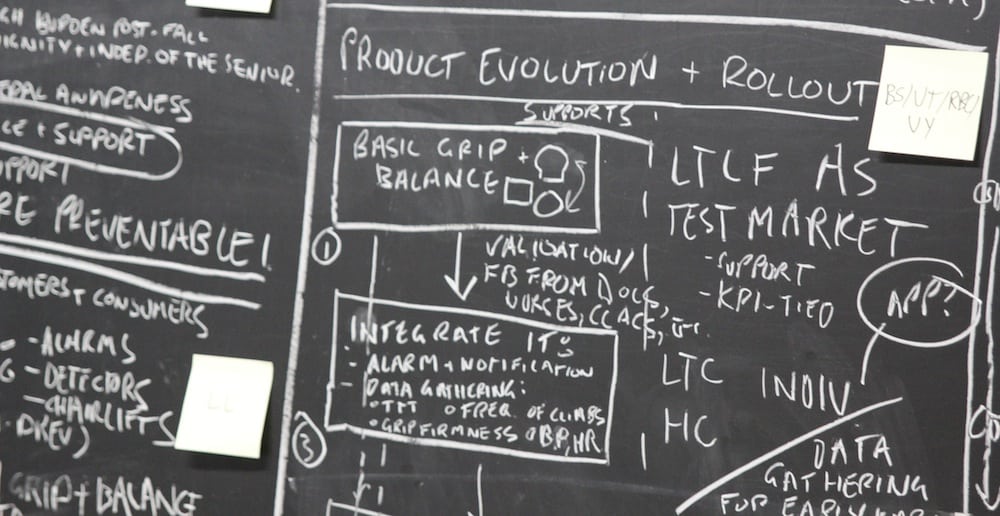OCAD University, together with the Ontario Centres of Excellence and The Working Group custom software company, hosted Toronto’s first-ever Startup Weekend Makers Edition from November 22–24. The Startup Weekend was an entrepreneurship marathon — in the course of the weekend, ideas were transformed into reality, and new developments in healthcare and tracking technology were among the results.
On Friday night, budding entrepreneurs formed teams with strangers who would soon be their business partners. Just 54 hours after the 11 teams gave their initial pitches, the prototypes and business models were presented. Startups were born with the help of 3D printers, laser cutters, and mentorship. The teams were vying for the chance to compete in the Global Startup Battle.

Two startups targeted health issues in the senior population. LifeCapsule is a smart scheduled pillbox for stay-at-home elders. A pillbox case is programmed with the patient’s medicine schedule and linked to a mobile app which notifies caretakers when the medication is taken. This allows for real-time monitoring, and LifeCapsule has the potential to significantly reduce the risk of hospitalization due to drug misuse and overdose.
Another product of the weekend, StableRiser, is a silicone-based grip for banisters aimed at minimizing the risk of staircase trips and falls among the senior population. Falls account for 60 per cent of hip fractures, from which further complications can arise.
Other startups were varied in their design and in their target industries. Highlights include ShipMetrix, a tracking and analysis system for high-value shipping items; Griflens, a project with interactive story beads that took home first prize; and WaveRider, a device and app system that extends virtual sports tracking to the world of aquatic sports.
The Varsity spoke with Holly Knowlman, one of the event’s organizers.
The Varsity: What is the most rewarding part of this experience?
Holly Knowlman: I have been organizing Startup Weekend for a couple of years now. This is the first Maker Edition we’ve done, and it’s also only the third Startup Weekend Maker Edition that’s happened at all. It’s always incredibly inspiring to see just what can be achieved in the course of 54 hours. These are teams who, at the beginning of the weekend, just had an idea. Most of them didn’t know each other, and now they have fully-formed startups, and some of these are going to go on to become legitimate businesses. It’s amazing and it’s energizing to see that happen.

TV: Were the teams able to have people with technical or marketing experience to help them throughout their development? Do they get mentors afterwards?
HK: Throughout the event, we bring in a range of experienced mentors. For example, GE, one of our sponsors, sent us 10 engineering mentors. And the people we have span design, development, customer development, product strategy, people who are experts at doing pitches and presentation, and teams have access to those people throughout the weekend. OCAD also provided us with expert technicians who were able to assist with the physical aspects of the prototyping.
TV: Where do you see the future growth of Startup Weekend?
HK: The really interesting thing about Startup Weekend is it’s a pretty young company; it’s very agile, and it’s also a global organization. It’s a non-profit, grassroots organization, and they’ve shown themselves really willing to explore different verticals. There was a Startup Weekend edu event in Toronto this summer, which is all around education startups — that’s something they’re exploring really heavily.
TV: Entrepreneurship culture has been growing exponentially in the past couple of years — how do you see startups fitting into the economy in the future?
HK: Startups are really, really fundamental to the economy. To have people wanting to start their own businesses, and being nimble and able to take advantage of market opportunity — that’s going to be the future of business.


